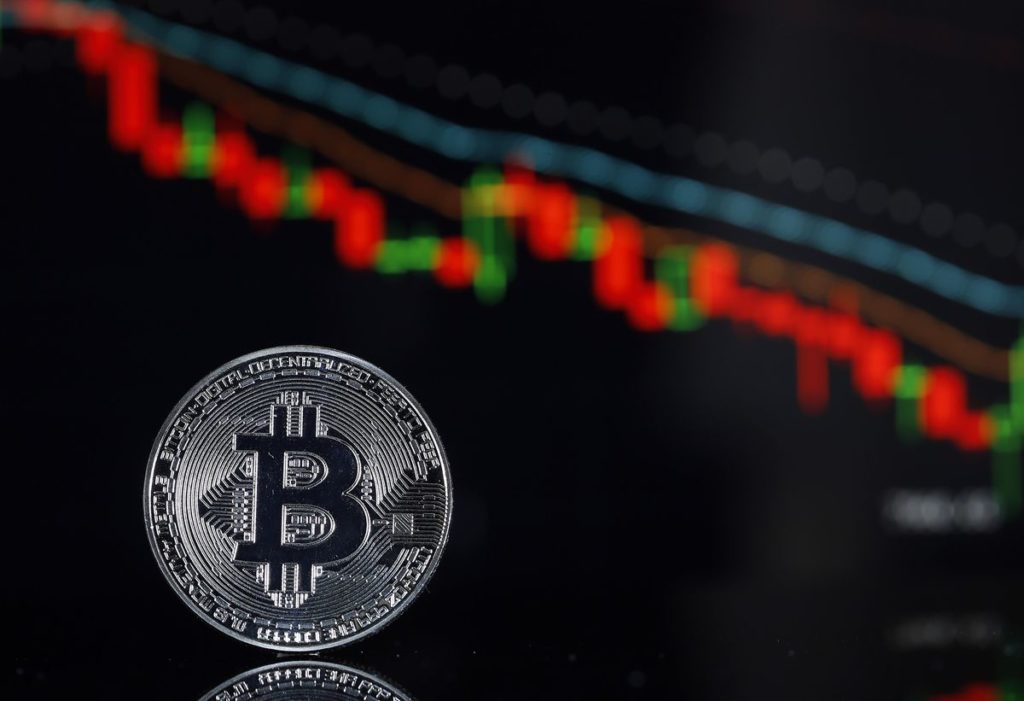Tom Lee is one of the most visible analysts following Bitcoin and digital currencies. As Co-founder and Head of Research at Fundstrat Global Advisors, he has compiled an extensive amount of data on them. His most recent note calculates Bitcoin’s return if an investor had not owned it for the 10 highest return days for 2013 to a few days ago. With Bitcoin almost cut in half from just the beginning of the year, falling from $13,850 to $7,200, keeping a long-term perspective may be needed to remain a HODLer (cryptocurrency jargon for a long-term holder).
[Ed note: Investing in cryptocoins or tokens is highly speculative and the market is largely unregulated. Anyone considering it should be prepared to lose their entire investment.]
Lee’s analysis is similar to what has been done for the S&P 500, which shows that market timing can dramatically decrease an investor’s return if they miss these days. It is true that if you could pick the 10 worst days and be out of the market for those, that your return would be substantially better than the Index. However, it is very hard, if not impossible to pinpoint those days.
Major return difference if out of Bitcoin for the best 10 days each year
Lee calculates that the S&P 500’s annualized return drops from 9.2% to 5.4% if an investor missed out on the 10 best days in each year. The numbers for Bitcoin show a dramatic difference in the same scenario.
In the chart below the light blue bar is Bitcoin’s return for the top 10 days of each year. The dark blue bar is Bitcoin’s return for the other 355 days of the year.
What it shows is that in four of the six years if an investor had missed out on the 10 best days, that they would have lost money in those years. And except for 2016’s gain of 22%, that 2017 would have been the only year with any substantial return.
The dotted red line shows that the annualized return from 2013 to 2017 would be a negative 25% if an investor had missed the 10 best days in each year. The two positive return years, 2016 and 2017, were not enough to make up for the declines in the other four.
Lee’s point is that given Bitcoin’s volatility, it is much better to be a HODLer vs. doing any short-term trading . He has also charted how Bitcoin could reach $91,000 by early 2020.
Bitcoin's annual return without the 10 best days each year.
Fundstrat, Bloomberg
Bitcoin Misery Index still in “oversold” territory
Lee has developed the Bitcoin Misery Index, or BMI. It is a contrarian indicator, meaning the lower it is, the more positive the outlook for Bitcoin to move up in price. This chart is from his March 9 report, so it doesn’t show its most recent number of 28. This would still put it in the “Misery” portion of the chart or oversold.
Tom Lee's Bitcoin Misery Index
Fundstrat, Bloomberg
RSI and MACD also showing a bit oversold condition
Lee’s BMI index may be more useful than the traditional RSI (Relative Strength Index) and MACD (Moving Average Convergence/Divergence) indicators since he has compiled some additional information to go along with his analysis. Also Bitcoin’s price was relatively low until 2017, so RSI and MACD may not have enough historical data to be accurate vs. when they are applied to securities having a longer track record. That being said both the RSI, the top portion of the graph below, and the MACD, the bottom portion, indicate that Bitcoin is in an oversold condition.
StockCharts.com
Please feel free to check out my other Forbes.com articles “9 Reasons Bitcoin Could Hit $100,000 Or More”, “12 Reasons Bitcoin Could Fall Below $1,000” and “Could Cryptocurrencies Imploding Tank The Stock Markets?”


